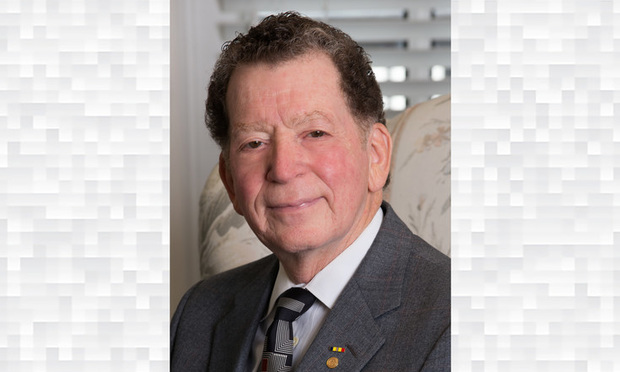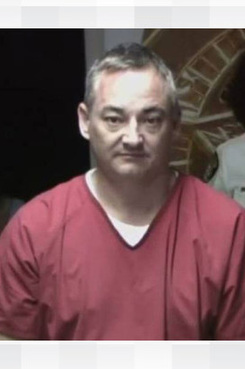'It Wasn't Pleasant': Retired Miami Judge Criticizes Social Security Judicial System After Former Colleague's Suicide
"If I had known about it, I would have driven down, gotten on a megaphone and said, ‘Tim, do you really want your son to grow up without a father?’ because he was very caring about the child," said retired judge Thomas Snook, former colleague of Social Security Judge Timothy Maher, who committed suicide after a 10-hour standoff with police.
 Retired Social Security judge Thomas Snook, Miami. Courtesy photo.
Retired Social Security judge Thomas Snook, Miami. Courtesy photo.
“He wasn’t some maniac running around,” retired Social Security Judge Thomas Snook said about Maher, who had been arrested days earlier on a charge of aggravated assault with a firearm after a domestic dispute at a home in El Portal. “I was very disappointed to read that he wasn’t Baker Acted.”
Snook, who was appointed to Miami’s Social Security office in 1997 and retired two years ago, took to social media, with a post on Facebook.
“I hope someone will investigate SSA culpability in this tragedy so it does not happen again,” he wrote. “Please share.”
“I am angry right now that a friend has needlessly died,” Snook’s post continued. “But I am more angry at how the Social Security Administration mishandled this tragic situation.”
The Social Security Administration did not respond to requests for comment by deadline.
“I felt helpless in seeing this turn from a tragic situation that could have been remedied into a death spiral,” Snook told the Daily Business Review.
 Related: Federal Judge Kills Himself in Standoff With Police
Related: Federal Judge Kills Himself in Standoff With Police
Maher’s personal issues arose from beyond the courthouse, and it’s since been reported by the Miami Herald that he owned more than 50 guns and had a “hit list.”
But Snook said that wasn’t the side of the judge that he knew.
 Miami-Dade County Administrative Law Judge Timothy Maher. Photo courtesy of Miami-Dade courts.
Miami-Dade County Administrative Law Judge Timothy Maher. Photo courtesy of Miami-Dade courts.
Snook’s anger is predominantly directed at the Social Security operation, which he feels ”is not a good model for a judicial system.”
He said the agency is home to a huge backlog of cases.
“That certainly played into my decision to retire,” Snook said.
When he left the bench, judges were “working toward” 50 hearings a month.
“The agency was putting more pressure on the judges to put out more cases,” Snook said. “Well, the judges aren’t the only person on the conveyor belt. But that’s unfortunately the way the agency looked at it, as a productivity issue, when you have to judge each case individually.”
Snook said he and Maher were among an “overwhelming number” of disability judges who weren’t able to retain staff because they were members of a union, the Association of Administrative Law Judges.
“In order to be a union member no one can work for you. It’s a very strange situation,” Snook said.
Click here to read a recent audit report from the Office of the Inspector General
Being a social security judge “wasn’t pleasant,” Snook said. That said, he doesn’t recall an instance when Maher said he felt stressed or pressured at work.
Back in 2014, Snook and Maher were featured in a Washington Post article, “The biggest backlog in the federal government,” along with Miami Social Security Judge Carol Pennock. It stated that the backlog at that time was over 900,000 cases.
“It’s more than a million now,” Snook said.
That article almost collapsed before it began, but “Judge Maher saved the whole plan,” Snook said.
The reporter, David Fahrenthold, had traveled to Miami to sit in on another judge’s hearing, but the claimant didn’t show up and the hearing was canceled.
According to Snook, “Judge Maher immediately said, ‘I have a hearing coming up in a few minutes and I don’t think the attorney would have any problem with somebody sitting in on the case. Why don’t you talk to the attorney?’”
But things took a turn in 2015, when the Office of Disability Adjudication and Review, or ODAR, conducted an investigation into Maher over allegations of harassment.
Read ODAR’s letter at the conclusion of its investigation of Maher:
According to Snook, Maher was barred from the Miami office and told to conduct all hearings from Fort Lauderdale for the duration of the investigation. The Office of Disability Adjudication and Review also allegedly instructed Fort Lauderdale staff not to speak to him, according to Snook.
Snook met Maher before he became a judge, when Maher was an attorney with the Internal Revenue Service. He expressed interest in becoming a disability judge, so Snook guided him through the “competitive” application process.
“As an example of how kind-hearted he could be, I got a gift card in the mail for a couple hundred dollars to Morton’s Steakhouse from Judge Maher afterward,” Snook recalled. “He wrote a little note and thanked me for helping him.”
 The Last Days of Judge Timothy Maher: What Led a Federal Jurist to End His Own Life?
The Last Days of Judge Timothy Maher: What Led a Federal Jurist to End His Own Life?
“There was an allegation brought against Judge Maher. With the secrecy this agency has, I still don’t know exactly what the allegation is,” he said. ‘But in any event, they ordered Judge Maher to conduct his hearings from the Fort Lauderdale hearing office.”
Snook felt like “things weren’t handled well by the agency.” He remembers Maher as having a “good sense of humor” and being “very caring” to courthouse employees.
When an attorney Maher knew became involved in a domestic dispute situation, he offered a helping hand.
“(The attorney) actually called Judge Maher and he told her to come to his home, as, basically, a safe house, and she did,” Snook said.
Ironically, when Maher was arrested Aug. 14, it was after he allegedly pointing a rifle at his ex-girlfriend in her El Portal home when he came to pick up their 4-year-old son under a shared-custody arrangement.
“When this incident with his girlfriend occurred, my understanding was that Maher went to the office the next day. But he certainly expressed to some judges that, basically, his career was over, that the agency would go after him for this,” Snook said.
A week later, Maher held his in-laws hostage inside a house in Homestead, then ended his life.
“If I had known about it, I would have driven down, gotten on a megaphone and said, ‘Tim, do you really want your son to grow up without a father?’ because he was very caring about the child.”

No comments:
Post a Comment